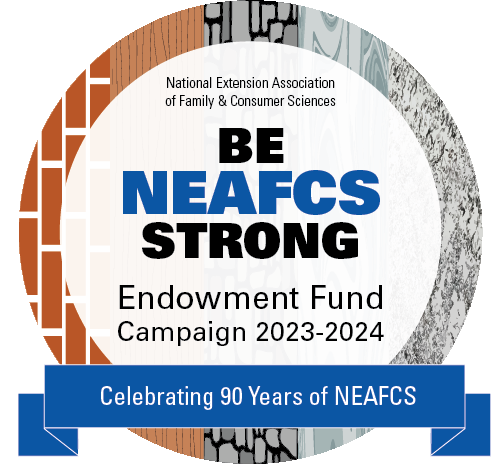Using Storybooks to Teach Children and Adults About Alzheimer's Disease
NEAFCS Endowment Grant Online Training
National Statistics
https://www.alz.org/media/Documents/alzheimers-facts-and-figures-infographic.pdf
More than 6 million Americans are living with Alzheimer's. When a family member has
Alzheimer's, everyone in that family is affected, including children!. Approximately
11 million Americans provide unpaid care for people with Alzheimer's or other dementias
and some of this population may also be caring for children at the same time.
Impacts to Families
With the increase in prevalence rates, many children know and interact with someone with Alzheimer’s. As the symptoms associated with Alzheimer’s progress, a person’s mood and personality changes often cause unusual and distressing behaviors. This creates stress on family caregivers and can have negative effects on a child’s emotions and behaviors. When interacting with an individual with Alzheimer’s, children may show signs of anxiety, confusion, and loss. They may also feel scared, guilty, upset, and embarrassed. When parents have knowledge and access to resources about Alzheimer’s dementia, they can support a child’s experience and decrease the likelihood these experiences will cause undue stress on the child and family.
Bibliotheraphy: An Evidence-Based Approach
To help children cope with significant life events, parents, educators, and other professionals have turned to developmental bibliotherapy, the practice of using storybooks to help children understand and cope with difficult experiences such as having a loved one with Alzheimer’s dementia.
How is Montana State University-Extension Addressing the Impacts of Alzheimer's on Children and Families?
Montana State University Extension has developed a storybook program for children and families who may be experiencing a loved one with Alzheimer’s dementia with the goal to provide supportive and easily accessible resources to parents and children across Montana.
Intended Audience
Extension Agents, Childcare Providers, Teachers, Librarians, Activity Directors at long-term care facilities, Parents/Caregiver’s, Family Members, or anyone interested in using storybooks to help children and families understand Alzheimer’s disease.
Program Resources
Through storybooks, parents and children can learn about Alzheimer’s dementia (stages, behaviors, and positively ways to interact and communicate) and what their loved one may be experiencing.
Another way these storybooks support families is by providing parents with an understanding
of what their child may be experiencing and how they can support their social and
emotional wellbeing during this time. We hope by providing this resource, stronger
multigenerational relationships will be fostered across Montana.
Download Contents in Folder
Left Side:
- Program Vision, Mission, and Goals and Objectives
- Informative Alzheimer's/Dementia Resources
- Guidlines for Conducting a Bibliotherapy Session
- Choosing a Storybook About Alzheimer's Disease
- Recommended Practices When Reading Aloud to Children
- Please Explain Alzheimer's To Me Parent/Caregiver-Information for Readers
- Talking With Aging Parents About Finances (MSU Extension MontGuide)
(PDF Version) (HTML Version-ADA Accessible) [Order Online]
Gives advice for dealing diplomatically with family finance issues.
Right Side:
- Legal Plans: Considerations for Helping a person Living with Dementia Plan for the Future (Alzheimer's Association)
- Money Matters: Making Financial Plans After a Dementia Diagnosis (Alzheimer's Association)
- Communication: Tips for Successful Communication During All Stages of Alzheimer's Disease (Alzheimer's Association)
- Understanding Alzheimer's Disease: What You Need to Know (National Institute of Aging)
- Understanding Memory Loss: What to Do When You Have Trouble Remembering (National Institute of Aging)
- Understanding Alzheimer's Genes: Know Your Family History (National Institute of Aging)
- Getting Your Affairs In Order (National Institute of Aging)
- Alzheimer's Disease Fact Sheet (National Institute of Aging)
- Alzheimer's Disease in People with Down Syndrome (National Institute of Aging)
- Legal and Financial Planning for People Living With Dementia (National Institute of Aging)
Program Implementation Ideas
Our program team has developed implementation ideas for professionals, organizations, or individuals to implement these storybooks into their Montana communities. We invite you to participate in this program using one or more of the implementation ideas listed below.
However, Alzheimer's storybooks and resources will need to be purchased with your own funding.
- State Community Training Sessions: (with Training Videos to Download and Share)
- Alzheimer Resources/Storybooks for Your Own Bags: You may want to implement a Alzheimer's Resources/Storybook bagsfor checkout in your state with resources or storybooks within the bags.
- Little Free Libraries: You may want to implement a Little Free Libraryin your state.
For more information: https://littlefreelibrary.org - Newspaper Articles: Please email [email protected] to received the newspaper articles to implement within your state or county.
Marketing Tools
Our MSU Extension program team has developed several marketing tools to help promote your program throughout your state or communities. These marketing materials are just for reference.
https://alzheimers.msuextension.org/alzheimertraining/marketing.html
Using Storybooks and Reading Guides
We have developed Reading Guides for seven storybooks depicting children’s experiences
with a loved one with Alzheimer’s dementia. To view these guides please visit: https://www.montana.edu/extension/alzheimers/storybookandreadingguides.html
The Reading Guides include questions to ask a child while reading the book, common
reactions a child may have towards Alzheimer's disease, enrichment activities to help
tie together the key ideas of each book, and websites that provide information to
support the whole family.
Please note: These reading guide were developed to be used by teachers, librarians, and parents
as a series beginning with a book that clearly explains Alzheimer’s Dementia and provides
supportive notes/sections for the reader (e.g. Striped Shirts and Flowered Pants.
We build off this foundation with other books showing children’s emotional experiences
as they navigate relationships with grandparents who have Alzheimer’s.


